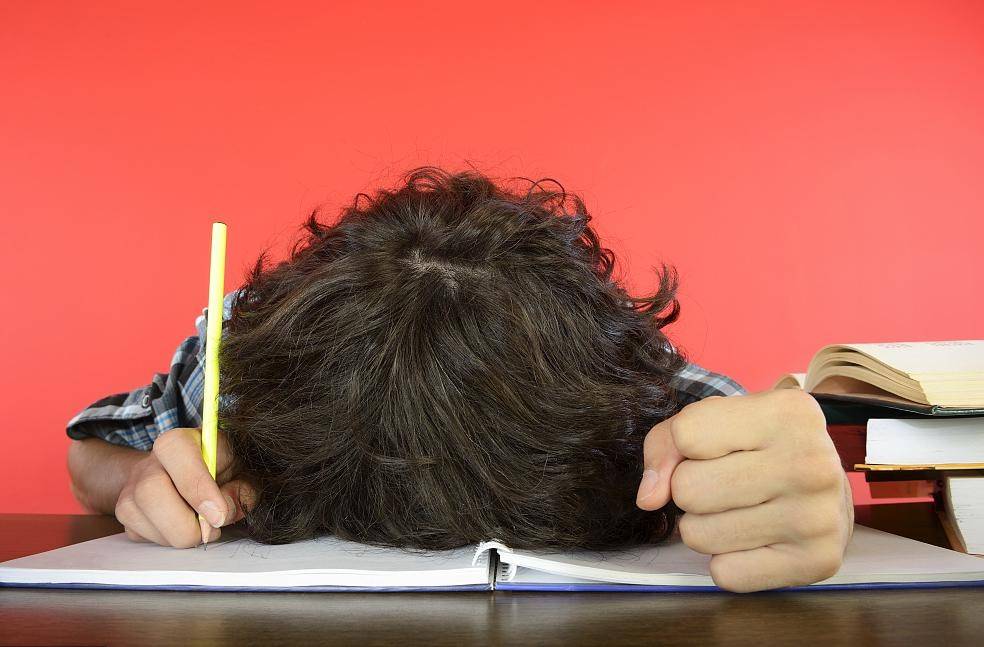Recently, a senior high school female student suffering from “back-to-school syndrome” due to excessive pressure has become a hot topic, attracting attention.
According to iSu Video, Xiaozhang, a high school student from Jiangsu, felt inexplicably fearful at the thought of becoming a third-year high school student upon returning to school, even experiencing symptoms such as dizziness and tightness in the chest. “I don’t want to go back to school because I didn’t do well last semester, and I feel a lot of pressure.” Xiaozhang also told the doctor that she feels very guilty because her parents have sacrificed a lot for her, leading to insomnia under multiple pressures.
With the new semester approaching, during the transition from summer vacation to the beginning of the school year, many children may exhibit emotional instability, anxiety, lack of focus, procrastination in completing assignments, causing headaches for many parents. Some people vividly summarize this phenomenon as “back-to-school syndrome.”
Is back-to-school syndrome a disease? What are the causes? How should it be treated? With these questions in mind, Jiu Pai News sought verification from Tang Jun, the head of the Children and Adolescents Mental Health Department at Wuhan Mental Health Center (Wuhan Psychological Hospital).
Tang Jun stated that back-to-school syndrome is not a medical diagnostic condition; it is a form of anxiety that children demonstrate as the holidays come to an end. “In outpatient settings, we almost see children who are unwilling to go to school every day, and there are more before the start of the school year.”
She also mentioned that “back-to-school syndrome” is more of a gimmick. “Transitioning from a relatively relaxed state during the summer vacation to a structured and tense learning environment on campus, most children will experience some degree of anxiety.”
Students struggling with assignments. Image/VCG
[1] The week before school starts is crucial
It is noted that every new school semester brings about continued discussions on “back-to-school syndrome.” Tang Jun also mentioned that on the eve of school reopening, children anxious about going to school can often be seen in outpatient clinics.
Tang Jun explained that “back-to-school syndrome” typically manifests as an emotional issue, with most children experiencing pre-school anxiety, “Most children will experience this situation.” She provided criteria to assess the severity of a child’s back-to-school syndrome, based on whether they can attend school normally.
“If a child feels unwell and dizzy before school starts but still goes to school and feels better after a couple of days, adapting to it, then it’s not a sickness. However, if after going to school some children face a noticeable decline in academic performance, worsening physical discomfort, or even somatic symptoms, it needs attention, and professional medical intervention should be sought promptly.”
She emphasized that back-to-school syndrome in most children can be prevented and effectively managed.
She advised parents to help their children “focus” in the week before school starts. Firstly, adjust the child’s sleeping schedule to align with school routines; secondly, review and complete any unfinished summer assignments promptly; thirdly, encourage children to reconnect with school classmates or good friends, allowing them to adapt to campus life in advance through peer interactions.
For children with severe school anxiety leading to physical symptoms or somatization, Tang Jun suggested encouraging them to attend school. “Give the child time to adapt. But if even after some time, the child struggles to adapt and shows ongoing negative symptoms, it’s time to consult a doctor for a range of treatments, including psychological therapy and behavioral interventions.”
Parents accompany their children to school. Image/VCG
[2] Addressing children’s emotional issues
Can back-to-school syndrome affect children’s health? Tang Jun stated that it usually lasts for a while and can have varying degrees of impact on a child’s learning and daily life. “After the school starts, with active guidance from teachers and parents and self-regulation by the child, these adverse symptoms gradually disappear and do not significantly affect the child’s physical health.”
She stressed that anxiety and discomfort are normal emotional states. Both adults and children need to gradually develop coping abilities in their lives to address problems effectively. She emphasized that parents should learn to pay attention to minors’ emotional and psychological issues, guiding and assisting them to face problems bravely.
Based on her years of clinical experience, Tang Jun mentioned that children do not develop emotional anxiety issues for no reason; these problems are often related to family and parental attitudes. “More and more children, when feeling anxious, exhibit clear somatic symptoms because parents tend to accept their child’s physical discomfort rather than recognize psychological problems.”
“When some children develop ‘somatization disorders,’ parents are focused on taking their child to various hospitals for tests, ignoring the emotional issues. Only at a later stage do they consider seeking help for their child’s psychological problems, and not every parent is willing to take their child to see a psychologist,” she pointed out.
Tang Jun explained that emotional disorders often result from long-term accumulation, leading to impaired social functioning. For students, this mainly affects two aspects: learning abilities, where emotions can impact their learning state, and social skills, which are crucial for maintaining good relationships with peers.
Healthy family environments and strong parent-child relationships foster better resilience in children, making it easier for them to adapt to external challenges. She highlighted that when minors face emotional and psychological issues, the key change required is from parents. “In reality, the family has the most significant influence on minors, and parents need to change together with their children.”
Jiu Pai News reporters Li Kai and Gong Lingwei
Edit: Wan Xuan, Li Yang
[Source: Jiu Pai News]
All rights belong to the original author. Salute to the original creator.


